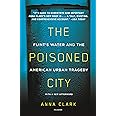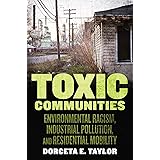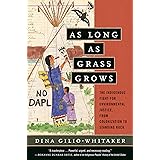
Enjoy fast, free delivery, exclusive deals, and award-winning movies & TV shows with Prime
Try Prime
and start saving today with fast, free delivery
Amazon Prime includes:
Fast, FREE Delivery is available to Prime members. To join, select "Try Amazon Prime and start saving today with Fast, FREE Delivery" below the Add to Cart button.
Amazon Prime members enjoy:- Cardmembers earn 5% Back at Amazon.com with a Prime Credit Card.
- Unlimited Free Two-Day Delivery
- Streaming of thousands of movies and TV shows with limited ads on Prime Video.
- A Kindle book to borrow for free each month - with no due dates
- Listen to over 2 million songs and hundreds of playlists
- Unlimited photo storage with anywhere access
Important: Your credit card will NOT be charged when you start your free trial or if you cancel during the trial period. If you're happy with Amazon Prime, do nothing. At the end of the free trial, your membership will automatically upgrade to a monthly membership.
Buy new:
$19.99$19.99
Ships from: Amazon.com Sold by: Amazon.com
Save with Used - Good
$13.69$13.69
Ships from: Amazon Sold by: Ben Deals

Download the free Kindle app and start reading Kindle books instantly on your smartphone, tablet, or computer - no Kindle device required.
Read instantly on your browser with Kindle for Web.
Using your mobile phone camera - scan the code below and download the Kindle app.

OK
 Audible sample Sample
Audible sample Sample 


The Poisoned City: Flint's Water and the American Urban Tragedy Paperback – July 23, 2019

Explore your book, then jump right back to where you left off with Page Flip.
View high quality images that let you zoom in to take a closer look.
Enjoy features only possible in digital – start reading right away, carry your library with you, adjust the font, create shareable notes and highlights, and more.
Discover additional details about the events, people, and places in your book, with Wikipedia integration.
Purchase options and add-ons
Winner of The Hillman Prize for Book Journalism - 2019
When the people of Flint, Michigan, turned on their faucets in April 2014, the water pouring out was poisoned with lead and other toxins.
Through a series of disastrous decisions, the state government had switched the city’s water supply to a source that corroded Flint’s aging lead pipes. Complaints about the foul-smelling water were dismissed: the residents of Flint, mostly poor and African American, were not seen as credible, even in matters of their own lives.
It took eighteen months of activism by city residents and a band of dogged outsiders to force the state to admit that the water was poisonous. By that time, twelve people had died and Flint’s children had suffered irreparable harm. The long battle for accountability and a humane response to this man-made disaster has only just begun.
In the first full account of this American tragedy, Anna Clark's The Poisoned City recounts the gripping story of Flint’s poisoned water through the people who caused it, suffered from it, and exposed it. It is a chronicle of one town, but could also be about any American city, all made precarious by the neglect of infrastructure and the erosion of democratic decision making. Places like Flint are set up to fail―and for the people who live and work in them, the consequences can be fatal.
- Print length336 pages
- LanguageEnglish
- Publication dateJuly 23, 2019
- Dimensions5.37 x 0.87 x 8.31 inches
- ISBN-101250181615
- ISBN-13978-1250181619
The Amazon Book Review
Book recommendations, author interviews, editors' picks, and more. Read it now.
Frequently bought together

Similar items that may deliver to you quickly
Editorial Reviews
Amazon.com Review
Review
**Winner of the 2019 Hillman Prize for Book Journalism
**Winner of the 2019 Rachel Carson Environmental Book Award
**Winner of the 2019 Gross Award for Literature
**Finalist for the 2019 Helen Bernstein Award for Excellence in Book Journalism
**Longlisted for the Andrew Carnegie Medal for Excellence in Nonfiction (2019)
**A Michigan Notable Book (2019)
“It’s hard to overstate how important Anna Clark’s new book is... A taut, riveting and comprehensive account.” ―USA Today
"An exceptional work of journalism. Clark delivers a thorough account of a still-evolving crisis, one with an unmistakable racial subtext.... Her book is a deeply reported account of catastrophic mismanagement. But it’s also a celebration of civic engagement, a tribute to those who are fighting back.”―San Francisco Chronicle
"A comprehensive chronicle of the crisis with an eye for the institutional corruption and indifference that enabled it.”―The New York Times
“Clark writes powerfully about the environmental consequences of a shrinking city, about how Flint’s financial decline drove the decision to switch drinking-water sources… She’s most effective describing the racism that shaped Flint.”―The New York Times Book Review
“A meticulously annotated, brutally honest, and compassionately narrated account of a disgraceful American crisis... The Poisoned City is a cautionary tale for every town and city across the land.”―The Christian Science Monitor
“Gripping and packed with meticulously sourced reportage... Clark’s rich account intersperses policy and environmental science with vivid portraits of Flint and its citizens, ramping up the tension as the horror unfolds.”―Nature
“An arresting and copiously documented saga of moneyed corruption… A bracing, closely reported chronicle… Clark ably pieces together the grotesque convergence of forces that transformed Flint into a byword of failed oversight and artificially induced hazard. And she rightly notes that the water crisis, as sudden and unexpected as it might have seemed, was the culmination of more than a generation’s worth of systemic neglect and cynical austerity-minded pillaging from on high.”―Bookforum
“Searing scrutiny... Riveting... A sobering read through all the spin and cover ups... A cornucopia of history and responsibly researched details... I have yet to encounter a more thorough, accurate or readable account of the poisoning of Flint’s municipal water supply than The Poisoned City. This is an important book, for Flint, for all American cities, and for our nation.”―East Village Magazine (Flint, Michigan)
“Incisive and informed... In the first full accounting of the Flint water crisis, Clark combines a staggering amount of research and several intimate story lines to reveal how the Michigan city was poisoned by its leaders and then largely abandoned to its fate by state officials.... Clark takes no prisoners, naming all the names and presenting the confirming research. ‘Neglect,’ she warns, ‘is not a passive force in American cities, but an aggressive one.’”―Booklist (starred review)
“A complex, exquisitely detailed account... A potent cautionary tale of urban neglect and indifference... Clark goes far beyond the immediate crisis captured nationally in images of bottled water being distributed to Flint’s poor, the most severely affected to explain ‘decades of negligence’ that had mired the city in ‘debt, dysfunctional urban policy, disappearing investment, disintegrating infrastructure, and a compromised democratic process.’ She warns that other declining American cities are similarly threatened.”―Kirkus Reviews (starred review)
“Compelling... A comprehensive account [that] boils down this complex tragedy... While devastating, this account is also inspiring in its coverage of the role of Flint’s ‘lionhearted residents’ and their grassroots activism, community organizing, and independent investigation... This extremely informative work gives an authoritative account of a true American urban tragedy that still continues.”―Publishers Weekly
“With every heartbreaking detail, Anna Clark’s must-read and beautifully rendered account of the Flint water crisis makes clear that this horrific poisoning of an essential American city was never just an unfortunate accident. Instead, it was the tragic, and indeed tragically inevitable, result of the fiscal, as well as environmental, racism that seems to run as deeply and powerfully in this country as water itself.”―Heather Ann Thompson, author of Blood in the Water: The Attica Prison Uprising of 1971 and Its Legacy
“Anna Clark’s book on the Flint water crisis rises to a great challenge: it sacrifices neither complexity nor moral clarity. And by etching this story’s outlines in decades of racist neglect, it is not just a splendid work of journalism. It is a genuine contribution to history.”―Rick Perlstein, author of The Invisible Bridge: The Fall of Nixon and the Rise of Reagan
“The Poisoned City is a gripping account of a devastating, unnatural disaster. Through deep research and on-the-ground reporting, Anna Clark makes the case that Flint’s water crisis is the result of decades of disinvestment and neglect, worsened by austerity policies and governmental malfeasance. This is essential reading for anyone who wants to understand America’s ongoing failure to deal with environmental injustice, racial inequality, and economic marginalization.”―Thomas J. Sugrue, author of The Origins of the Urban Crisis: Race and Inequality in Postwar Detroit
“The story of the Flint crisis is disturbing enough even if one knows only a few details. But the entire case, as laid out by Anna Clark, is enraging. Clark has sifted the layers of politics, history, and myopic policy to chronicle the human costs of this tragedy. Flint is not an outlier, it’s a parable – one whose implications matter not just to a single municipality but to every city in the country and all who live in them.”―Jelani Cobb, Ira A. Lipman Professor of Journalism, Columbia University
“The poisoning of Flint was unintentional but it was no accident. Read Anna Clark’s empathetic yet emphatic history and you will understand how this American tragedy could have been prevented – and why it wasn’t. Her book will make you mad, but it will also give you hope for the rebirth of our cities and maybe even our democracy.”―Dan Fagin, author of Toms River: A Story of Science and Salvation
About the Author
Product details
- Publisher : Picador; Reprint edition (July 23, 2019)
- Language : English
- Paperback : 336 pages
- ISBN-10 : 1250181615
- ISBN-13 : 978-1250181619
- Item Weight : 11 ounces
- Dimensions : 5.37 x 0.87 x 8.31 inches
- Best Sellers Rank: #557,181 in Books (See Top 100 in Books)
- #101 in Water Supply & Land Use (Books)
- #323 in Environmental Policy
- #8,877 in U.S. State & Local History
- Customer Reviews:
About the author

Anna Clark is a journalist in Detroit. She’s the author of "The Poisoned City: Flint’s Water and the American Urban Tragedy," named one of best books of the year by the Washington Post, the San Francisco Chronicle, Kirkus, the New York Public Library, Amazon, Audible, and others. It is the winner of the Hillman Prize for Book Journalism and a Michigan Notable Book. Anna’s articles have appeared in Elle, the New York Times, Politico, the Columbia Journalism Review, Next City, and other places. She edited "A Detroit Anthology" and wrote a book on the literary culture of the Great Lakes State. Anna has been a Fulbright fellow in Kenya, and a Knight-Wallace journalism fellow at the University of Michigan.
Customer reviews
Customer Reviews, including Product Star Ratings help customers to learn more about the product and decide whether it is the right product for them.
To calculate the overall star rating and percentage breakdown by star, we don’t use a simple average. Instead, our system considers things like how recent a review is and if the reviewer bought the item on Amazon. It also analyzed reviews to verify trustworthiness.
Learn more how customers reviews work on AmazonReviews with images
-
Top reviews
Top reviews from the United States
There was a problem filtering reviews right now. Please try again later.
What became clear reading this book though is that the Flint water crisis is not a solved problem, a crisis that came and went, by almost any dimension you care to analyze it by. While the water may be coming from Lake Huron again instead of the Flint River, there has still been work scheduled into this year to remove lead pipes from the city's system. Not only that, but it's clear that the water crisis in Flint is actually a symptom of a larger problem which plagues all of the United States: we're not properly investing in infrastructure and we're not properly investing in making sure our infrastructure built over the past century is in fact still safe.
Clark's account reveals that this kind of catastrophe is a result of decaying infrastructure. The population of flint has decreased significantly over the past 50 years, but the city water system is still the same size. I was shocked to discover that people living in flint had some of the highest water bills in the country.
This is an interesting book, but I don't believe it is the definitive account of the Flint Water Crisis. That crisis is still unfolding, and I would have liked it if Clark included more first hand accounts of the daily routine that people living there faced. The book is also vary short. It is 300 pages, but 100 of those pages are notes, and there are about 50 pages worth of Flint City History, which I didn't find all that interesting. I bought the book to learn about lead in the water, not about hunting and trading in the 1700s.















